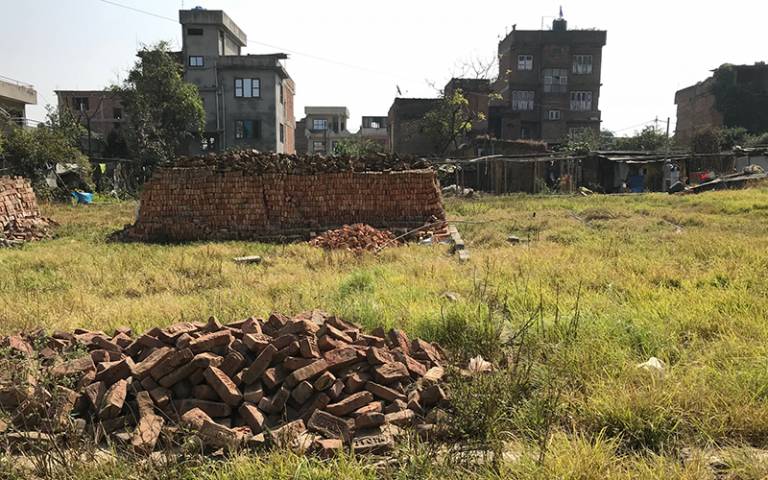DPU PhD candidate successfully defends thesis on Women’s Experiences of Post-Disaster Reconstruction
2 March 2021
Congratulations to Lucila Carbonell who has defended her thesis that gender-sensitive governmental and humanitarian agencies need to reframe ‘shelter self-recovery’ as an integrated approach

Her thesis, titled 'Reframing Shelter Self-Recovery: Women’s Experiences of Post-Disaster Reconstruction in Machhegaun, Nepal, after the 2015 Earthquake', argues that ‘shelter self-recovery’ can be used as an integrated approach that acknowledges the simultaneity of multiple social identities, partners with women-led local initiatives to define shelter needs and enables women to participate in formulating policies and programmes, and lead on decision-making.
The 2015 Gorkha earthquake in Nepal had a devastating effect on human well-being, claiming nearly 8,800 lives and destroying the built environment. Governmental and humanitarian agencies put policies and programmes in place to support shelter self-recovery, enable disaster survivors to be primary decision-makers, and encourage safer reconstruction. While these agencies recognised the importance of prioritising the needs of women and other groups in vulnerable situations, reports show the support they implemented did not reach these groups. Many found themselves left in situations far worse than those in which they had lived prior to the disaster; some, such as elderly, low-income single women with no formal land tenure, were left homeless.
Her research finds that part of the problem lies in how the shelter sector defines and uses the term ‘shelter self-recovery’. Very similar to ‘owner-driven reconstruction’, it refers to how people themselves recover, and at the same time, to the approaches taken by agencies to support disaster survivors. Her research analyses how the term is used, drawing on the precedents of ‘self-help housing’ and ‘gender in post-disaster reconstruction’ literature, to find it is a technical approach that prioritises the distribution of resources to individual households and omits in-depth consideration of the gendered and intersectional character of recovery.
Thus, her research reframes the term ‘shelter self-recovery’ from women’s experiences using a social justice analytical framework. With a single case study and qualitative methods, it explores - through thematic analysis - in-depth data on the recovery experiences of thirty-three women and four men, six focus group discussions, and twenty additional key informant interviews. In so doing, her research maps the complexity of the ‘shelter self-recovery’ process and highlights how, while systemic social inequalities constrain women’s access to land and tenure, to financial resources and livelihoods, and to administrative knowledge, collective groups in the area were taking actions that could successfully address these constraints.
 Close
Close

